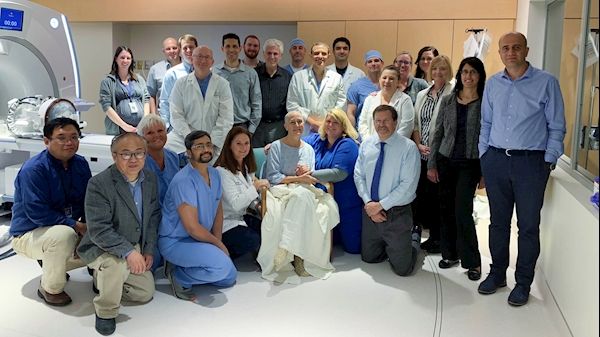If you found this article informative please like and follow our Facebook page for the latest in neuroscience news: https://m.facebook.com/story.php?story_fbid=572929550002060&id=383136302314720
MORGANTOWN, W.Va. – The West Virginia University Rockefeller Neuroscience Institute today announced a new study published in partnership with Weill Cornell Medical Center that demonstrates the successful opening of the blood brain barrier in the hippocampus and entorhinal cortex using focused ultrasound to treat six patients with early onset Alzheimer’s disease.
This first-in-the-world study has been published in the Proceedings of the National Academy of Sciences journal. The effort is part of a Phase II clinical trial, sponsored by INSIGHTEC, which developed the technology and manufactures the focused ultrasound device, Exablate Neuro.
“The blood brain barrier has long presented a challenge in treating the most pressing neurological disorders,” Ali Rezai, M.D., executive chair of the WVU Rockefeller Neuroscience Institute, said. “The ability to non-invasively and reversibly open the blood brain barrier in deep brain areas such as the hippocampus, offers a new potential in developing treatments for Alzheimer’s disease.”










Comments are closed.